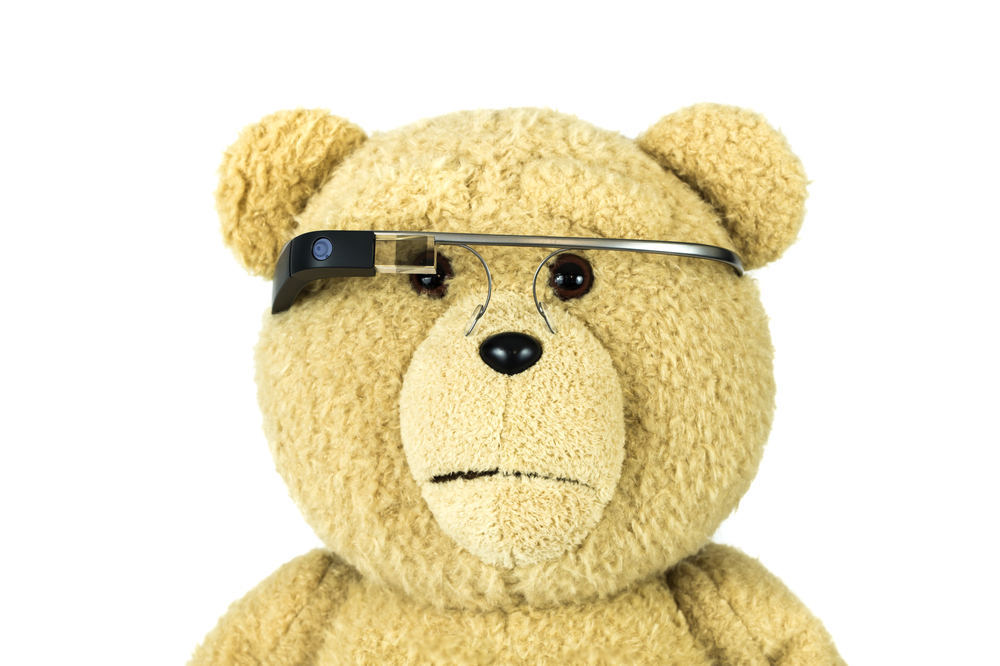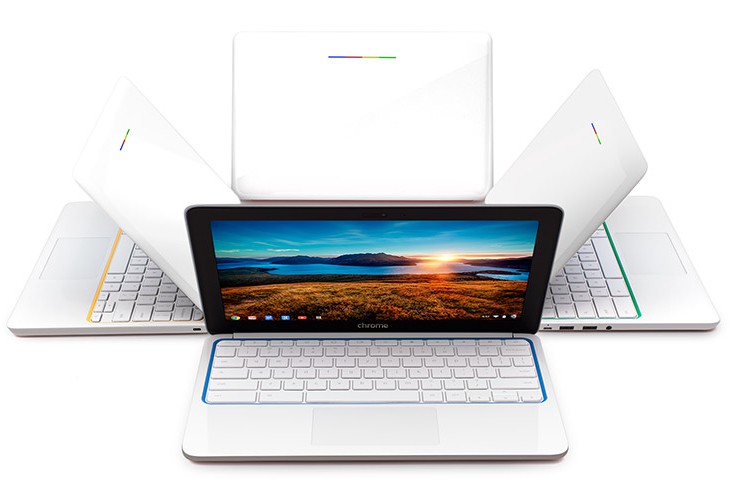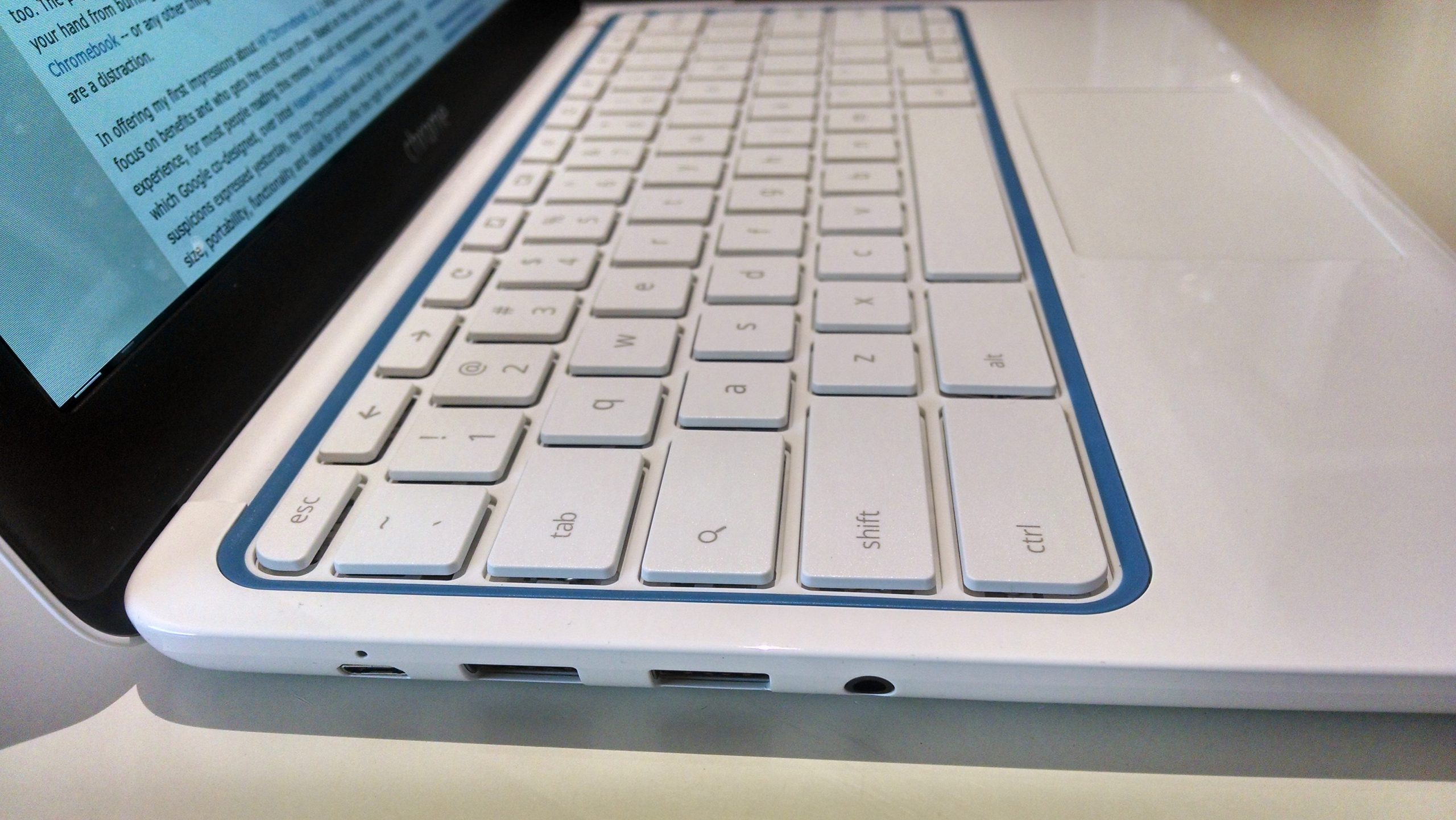
Google Trends helps you be relevant and the life of the party with 'Hot Searches'
Have you ever been at a party and felt out of touch? I have. Quite often, the conversation turns to some Internet meme or current event and I just have no idea what people are talking about. It's my own fault, I tend do focus mostly on technology news as world news is rather depressing. Not to mention, it is hard to find time to stay on top of it. Believe it or not, I even ignore weather reports as I prefer to be surprised.
Google apparently feels my pain as it aims to make me relevant and sociable again with an updated Google Trends. Yes, the search-giant has created a way to get hot trends delivered right to your inbox.

Trend Micro releases free Heartbleed scanners for Android, Chrome
Trend Micro has announced the availability of two free scanners for the Heartbleed bug, meant for Google Chrome and Android. The first, a browser add-on, allows users to enter and check any specific URL.
The second, an Android app, is a little more advanced. It checks whether your device or apps are directly affected by the bug, or whether any installed apps access a cloud service which is still vulnerable.

Peanuts, Cracker Jack and Chromecast -- MLB.TV comes to Google's dongle
Take me out to the ball game. Take me out with the crowd. Take me to Best Buy to buy a $35 Chromecast. When Google's dongle was announced, I don't think anyone truly knew how popular it would be.
At first, it seemed like a cool little accessory for watching YouTube or Netflix videos on your TV. Really, that's all that it was. That is, until Google opened up the SDK. Now, the floodgates are open and the sky is the limit. Today, Chromecast scores its biggest win yet, with live casting from MLB.TV.

Amazon and Samsung launch custom Kindle for Samsung service
Not content with already having a Kindle app for Android devices, Amazon has joined forces with Samsung to launch Kindle for Samsung. The slightly unnecessary venture brings a new custom ebook service to owners of devices from the South Korean firm and launches on the Galaxy S5 immediately. Other Samsung Galaxy handsets and tablets will gain access to the app shortly afterwards, providing they are running Android 4.0 or newer. Of the millions of books and magazines that will be available through the service, more than 500,000 of the titles will be exclusives.
At the same time as the Kindle for Samsung launch, the two companies are also launching Samsung Book Deals. This enables Galaxy owners to obtain up to 12 free ebooks per year, making a selection from a choice of four each month. With the promise that "each book is chosen specifically for Galaxy smartphone and tablet users from a wide selection of prominent titles", there should be something for everyone.

Chrome Remote Desktop comes to Android, iOS 'later this year'
In late-2012, Google released Chrome Remote Desktop, allowing users of the popular browser to provide and receive remote assistance. The feature has been especially useful to those who rely on Chromebooks, which have a much more limited app selection compared to traditional PCs where many tools, like TeamViewer, are available for such tasks.
Now, Google brings Chrome Remote Desktop to Android. Unlike on PCs where the feature can be added to the browser, this tool is a standalone app, designed for both phones and tablets.

Google Camera goads iPhone
Android phones running stock or manufacturer-installed KitKat 4.4+ get a big photo-shooting upgrade today. Google Camera is now available from the Play store. The app replaces the standard shooter on Nexus devices and places a separate camera app on others. The headline feature: Lens Blur, which does exactly what the name indicates. You shoot the image, and then use the app to either blur the foreground or background. Photographers call the capability "bokeh", and it usually requires a specialized lens on dedicated hardware to produce well. The blurred effect is highly desirable for portraits. Can you say selfie?
Google does what Apple should -- use software development wits to add hardware smarts. This is exactly the kind of thing I would expect from the fruit-logo company first. But that's a number recently missing from the iOS crop. Google is by no means first to offer software blur, but in my testing delivers arguably the best effort. Hell, the new camera app even shames newfangled hardware mechanisms. HTC One M8 uses two lenses and feature UFocus to produce bokeh. In my testing, on The One and Nexus 7, blur is surprisingly comparable.

Google scanning and analyzing the numbers on your house -- strengthens reCAPTCHA
The greatest dream for many people is home and land ownership. House prices, at least in the USA, are extraordinarily expensive, putting this dream out of reach for many. For those that do achieve the dream, there are many hurdles that must be faced afterwards -- utility bills, property taxes and maintenance to name a few.
Well, homeowners have one more thing to worry about -- the visibility and legibility of their house numbers. You see, Google is now using a sophisticated algorithm to scan Street View data and detect those numbers. The end result is better accuracy in Google Maps, and a stronger reCAPTCHA.

Gmail learns a new trick -- easily insert auto-backup photos on the web
Cloud storage is great for mostly all file types, but there is one type where it truly shines -- photos. Smartphones have become ubiquitous in daily life, making them the perfect camera. After all, precious memories can occur at anytime, not only when you have your DSLR or point-and-shoot. And so, auto-backup of photos to the cloud is an ideal situation for safety and sharing.
Overall, auto-backup is a great solution, because people like the idea of having their entire library of photos with them wherever they go. However, it can sometimes be tedious to utilize those photos. For example, inserting an image from the cloud into an email can be more complicated than adding a locally stored file. Google recognizes this dilemma and improves Gmail on the web with a new "Insert Photo" button.

Google is a bully, but that's not necessarily a bad thing
Google has a lot of mud thrown at it, and while a lot of it slides off, there is a good proportion that sticks. There are a variety of accusations levelled at the search giant -- evil, self-serving, monopolistic, nosey, invasive, overbearing, corporate, et cetera, et cetera -- but could it be that the power the company wields is actually a good thing? Could Google use the sway it holds over website owners to make the web a better place? But before we start praising Google, there's no harm in sticking the boot in first, eh?
For many people, Google is a bully. In the constant search for page views, ranking in Google matters -- it matters a lot. My colleague Joe Wilcox argues that writers should write for themselves and their readers rather than Google -- something I would strongly advocate -- but until this notion gathers momentum, there are still countless bloggers panicking themselves silly about what impact the latest search algorithm changes will have on their position in search results. It can be a constant game of catch-up, requiring endless changes to optimize content for maximum visibility -- all too often at the expense of readability and reader experience.

The most popular stories on BetaNews this past week: April 6 -- April 12
Microsoft was in the headlines this week not for launching new products but for, finally, bringing an end to support for Windows XP. Yes, the now ancient and decrepit -- although still much loved and used -- operating system is no more. It will be interesting to see how long it manages to survive now it has been officially dropped -- some are suggesting that a move to Linux might be in order, or even a switch to Chromebook. But, of course, it hasn’t all been about XP. After the announcements at Build, Joe Belfiore revealed on Twitter that developers will be able to get their hands on Windows Phone 8.1 in the "first part of April".
There is also renewed interest in Windows 8.1 following the release of Update, and Microsoft published a guide to making the most of the new features and options. Will the operating system be viewed as fondly as XP in years to come? Only time will tell. Working in conjunction with Google, Microsoft also gave a new and improved YouTube experience to Xbox One owners.

Google blows up the Easter Bunny
While Easter is technically a religious holiday, many people do not celebrate it as such. Instead of biblical stories, they speak of magical bunny rabbits that deliver chocolate, and that is OK. After all, people have the right to celebrate as they want.
One iconic Easter treat is Easter Bunny-shaped chocolate. Many children look forward to seeing this in their Easter basket every year. But did you know that there is a classic hare painting on which many of the confections are based? It's true and now Google is "blowing it up" by making it a gigapixel image.

Want Google Glass? Become a 'Glasshole' on April 15th
Google Glass has yet to be officially released to the public, yet the product has already made a big impact on society. If you aren't familiar, it is a computer that you wear on your head, like glasses, with an integrated camera. The camera is what has ingrained the product into popular culture by way of controversy. It should come as no surprise that people become uncomfortable when a camera is pointed at them. News reports started hitting the airwaves that wearers of the product were being assaulted, banned from businesses and issued traffic tickets.
However, the controversy and hatred towards the product has been minimized thanks to its relatively small footprint. You see, Google limited sales to what the company officially dubbed "Explorers" -- basically technology nerds that the company knew would like the product. Unofficially, people that dislike the product have started calling owners "Glassholes". Today, the company announces that starting on April 15th, all adults in the USA are welcomed to buy it -- but availability will be limited.

Google stops the hemorrhaging -- patches OpenSSL Heartbleed bug
The Heartbleed bug is quite the devastating blow to computer security. The OpenSSL failure has the unfortunate effect of lowering computer users' confidence in SSL. However, the mistrust in SSL is misplaced, as it is only the OpenSSL implementation that is affected. No matter though, the damage is done and the flaw has been available for exploit since 2011.
When the news of the flaw was announced, many people's attention turned to Google. No, the company is not the cause of the bug, but since it controls such a huge part of the Internet, people hoped that its services were unaffected. Sorry people, Google was affected too. However, the company was also quick to patch, announcing the details of such today.

As Windows XP expires, Google urges Chromebook adoption
Support for Windows XP comes to an end today. Despite that, there are still a fair number of customers continuing to run the aging operating system. While those customers may be a bit sad about the demise, not everyone is.
On the heels of my colleague Joe Wilcox touting Chromebook, Google does the same. The company is taking advantage of this situation to lure current Windows XP users over to its Chromebook platform. In fact, the search giant is using the company's own PR against it, stating "even Microsoft admits: it's time for a change". That statement is followed by an image of an aged computer, complete with CRT monitor.

Hello, Chromebook!
Today Mihaita Bamburic bids "Goodbye, Windows XP!" Meanwhile, Wayne Williams walks down eXPerience memory lane. For good reason: This week, Microsoft pulls the life support plug -- following many, many, many delays. Henceforth, you use XP at your own risk, or forcibly march forward into the second decade of the 21st Century. You could follow Microsoft to Windows 8.1, or be truly courageous. Mac or Linux laptop are options, or you could go Chromebook. Yeah, you read right.
Here in the United States, Best Buy will trade in your XP clunker and give "minimum of $100 toward the purchase of a new Windows computer, Apple computer or Chromebook". The offer ends April 19, so hurry. The cash back will practically pay for a new Chromebook, which costs so little and does so much -- surely more than your XP wheezer. Someone from the Windows division once told me that O2, as in Oxygen, was one of the runner-up names for XP. How fitting. Your old machine has been living off oxygen for far too long. Pull the plug. I'll give you some reasons why Chromebook.